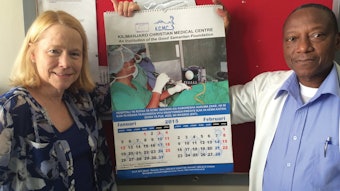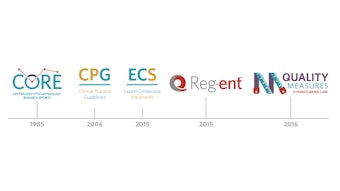Reg-ent Future—Obtaining Optimal Data from Your Electronic Health Record Software
As Reg-ent transitions to a broader and more complete use of the data that we and our participants have worked so hard to accumulate, it is critical that we maintain optimal dataflow from the individual Electronic Health Records (EHR).
James C. Denneny III, MD AAO-HNS/F Executive Vice President and CEO
As Reg-ent transitions to a broader and more complete use of the data that we and our participants have worked so hard to accumulate, it is critical that we maintain optimal dataflow from the individual 
These additional projects will require more complete data transfer than simple MIPS reporting. We will need to access structured and unstructured data; ancillary data such as laboratory, imaging, and audiological results; and patient-reported outcomes. The transfer of these various data from FIGmd to OM1 has proven to be more complex than initially anticipated, and while progressing steadily, it has taken longer and required more work from both the participants’ and our staff’s perspective. This is made considerably more difficult because of the large variety of EHRs utilized by our members. Providing adequate interfaces for the multitude of systems has been challenging, particularly given the varying level of technological capabilities from rudimentary to state-of-the-art. However, an even greater obstacle has turned out to be the unwillingness of some of these vendors to cooperate and, even worse, the increasing tendency for many of these vendors to add unjustified fees to our participants.
As healthcare reform moves forward, it is unclear the exact direction things are heading as far as payment models are concerned. We already know that governmental systems such as Medicare and Medicaid have built-in statutory quality requirements into all their programs. Increasingly the private payers are also utilizing incomplete data to set network participation and payment parameters based on their own “value formula.” There can be no question that the ability to provide one’s own data and quality profile will have great value to you no matter what system prevails. At least initially, it is likely that there will be more than one strategy employed. The ability for individual physicians and practices to collect and analyze their own data will be invaluable and necessary for participation in payment systems and clinical trials, and most importantly, for maximizing patient results.
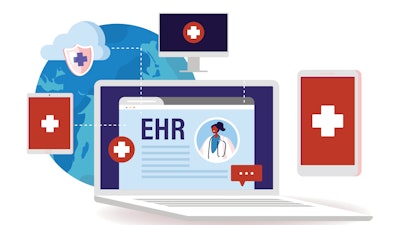
Electronic Health Records that Work Well with Reg-ent
*Denotes Server-Based EHR Solutions- eClinicalWorks*
- eMDs
- Epic*
- GE Centricity
- Greenway -Intergy*
- Greenway -Primesuite*
- Medinformatix
- Medent
- Medisoft Clinical
- Meditech
- Modernizing Medicine
- NexTech
- NextGen*
- PrognoCIS
- SRS Soft
If you or your practice are considering upgrading your EHR, I would strongly urge you to consider a vendor that is easy to work with and understands the importance of collaborative-data sharing to improve patient care. This is particularly important because it may well be a requirement to participate in evolving payment platforms. Vendors that are unwilling to work with your partners or who charge excessive and unnecessary fees to do so should be avoided. It has become so frustrating for our participants, staff, FIGmd, and OM1 that we have chosen to highlight and identify the vendors that have been most cooperative and easy to work with by helping their customers rather than blocking their progress or adding costs that were not previously met. This recommendation applies to current Reg-ent participants and those who may have interest in participating in Reg-ent or some other registry-like analytic platform. Those who have uncooperative EHRs will be unable to participate in the revenue-generating clinical trials we will be starting soon. Please feel free to contact our staff about our recommended list as seen in this article and in the following pages.




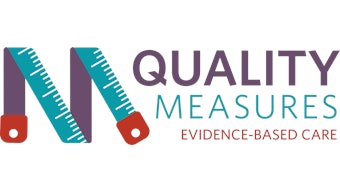


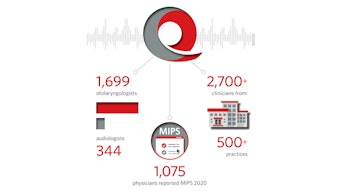
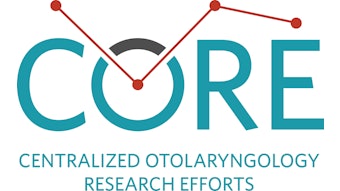

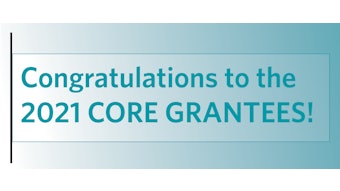
![05 Hpv Vaccination [converted]](https://img.ascendmedia.com/files/base/ascend/hh/image/2021/06/05_HPV_Vaccination__Converted_.60d0a1f25afe4.png?auto=format%2Ccompress&fit=crop&h=191&q=70&rect=45%2C0%2C1830%2C1830&w=340)




